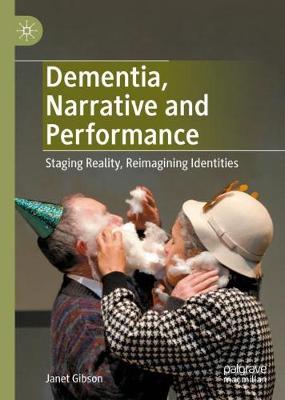Focusing mainly on case studies from Australia and the United States of America, this book considers how people with dementia represent themselves and are represented in 'theatre of the real' productions and care home interventions, assessing the extent to which the 'right kind' of dementia story is being affirmed or challenged. It argues that this type of story - one of tragedy, loss of personhood, biomedical deficit, and socio-economic 'crisis - produces dementia and the people living with it, as much as biology does. It proposes two novel ideas. One is that the 'gaze' of theatre and performance offers a reframing of some of the behaviours and actions of people with dementia, through which deficit views can be changed to ones of possibility. The other is that, conversely, dementia offers productive perspectives on 'theatre of the real'.
Scanning contemporary critical studies about and practices of 'theatre of the real' performances and applied theatre interventions, the book probes what it means when certain 'theatre of the real' practices (specifically verbatim and autobiographical) interact with storytellers considered, culturally, to be 'unreliable narrators'. It also explores whether autobiographical theatre is useful in reinforcing a sense of 'self' for those deemed no longer to have one. With a focus on the relationship between stories and selves, the book investigates how selves might be rethought so that they are not contingent on the production of lucid self-narratives, consistent language, and truthful memories.
- ISBN13 9783030465469
- Publish Date 30 September 2020
- Publish Status Active
- Publish Country CH
- Imprint Springer Nature Switzerland AG
- Edition 1st ed. 2020
- Format Hardcover
- Pages 298
- Language English
